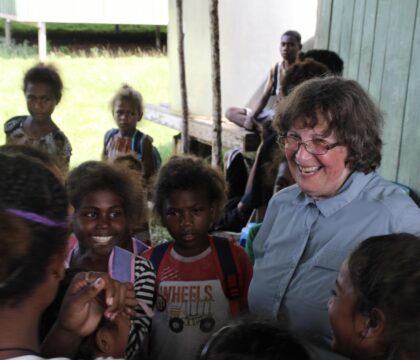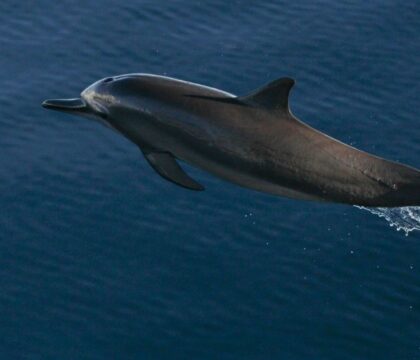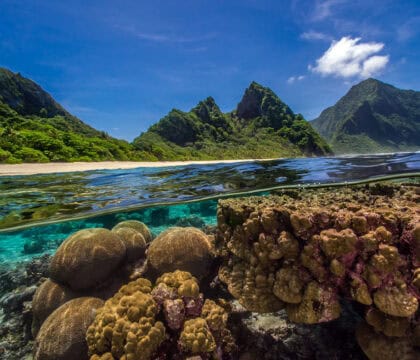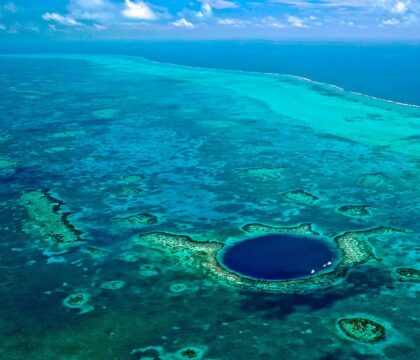May 31, 2017 • News Announcements, Program Updates
2017 was an incredible year for the Whales of Guerrero Research Project and I am so grateful for our supporters’ continued commitment to ocean health and the people and communities around Barra de Potosi.
This was a turning point for the Whales of Guerrero Research Project; we saw more whales than we’ve ever seen, recorded months of continuous ocean sounds, expanded our school programs and saw incredible growth in our local ecotourism co-op. This work means so much to the people of Barra de Potosí and the community is starting to feel the benefits of a diversified, and healthy, economy.
Personally, my dream came true of having a mostly Mexican team and of hiring local people to become trained biologists alongside our scientists. It was incredible to witness our team grow as conservationists, scientists and educators throughout the season.
Recent political changes have impacted federal programs that have supported our work and we are looking to our closest supporters to help us raise the funds to continue this important work. I need to raise $130K to fully fund our 5th and final year. (See our 2017-2018 budget here.) Please consider supporting this work today.
Education
Teaching the next generation of ocean stewards is critical and in this last year we reached 785 local students through presentations, workshops, community events, and art fairs. Local women artists in Barra joined together to put on marine-mammal themed art fairs and over 1000 more visitors fell in love with the people, the region, and the incredible marine wildlife.
We are so proud of our partner school Insititu Lizardi, who spent time out on the water to see the whales for the first time after studying them in the classroom all year. Local high school teacher, Andrea Garcia Chavez, took the students and their marine mammal studies and presented in Mexico City at the Congreso Estudientil del Sistemo.
Our work with local schools is paramount. Kids are having to make tough choices and some are joining cartels where there are more short term gains. Our school programs, training and job creation will have long lasting impacts on this region and help give the next generation expanded opportunities.
I am so grateful to be welcomed into the Barra community and to see this project offering much more than I could have ever imagined when we started. Please join me in helping these communities thrive, please consider a donation today.
Ecotourism
Barra’s tourism co-op has really taken root and continues to grow. The community is committed to responsible ecotourism development and it is paying off. Restaurants, hotels and short term rentals had a strong season, in part to the growing awareness about the wonders of the bay and lagoon. Whales of Guerrero pitched stories and did interviews, expanding the awareness of the spectacular resources of this region. Locally, community awareness, pride of ecotourism and understanding the importance of preserving nature is building momentum. The tools and opportunities we are developing now will ensure this region and ocean stays healthy.
Whales of Guerrero trained 34 new people this year as safe whale and dolphin guides. Our existing corps of 9 guides took visitors out on the water all season and made more money than they would as sport or commercial fisherman. This is critical as the fishery is collapsing in the region and most are no longer able to support their families through fishing.
Without proper boat operator training, whales and dolphins will be in danger of propeller strikes and high levels of stress which will affect their reproductive levels. Training, along with community driven monitoring is essential to determine whether people are loving these animals to death by getting too close to them and harassing them.
Looking Ahead
This summer, I will travel to Barra de Potosi to meet with the co-op and community. Together we will build a website for ecotourism so that they can promote, reserve and book their own tours. This is a big shift, as I have been the primary conduit to booking ecotours with the trained guides. I’ll meet with tourism agencies and large hotels/resorts to raise awareness about working with trained whale watching guides and promote boater safety.
I’m looking forward to connecting with the fisherman in the regional communities to learn about their perception of fishery, marine conservation and movement towards sustainable fishing.
We have much to accomplish in our final year, we will be locally and internationally ramping up our publicity, expanding into 10 more schools, purchasing much needed equipment including hydrophones, cameras and other field equipment, completing our field study and analyzing data, and training more guides. We are looking for a Mexican non-profit fiscal sponsor, which will allow us to seek support from Mexican government groups and foundations.
As the next step in the evolution for Whales of Guerrero, we will be doing a cultural exchange. 14 of our local Guerrero leaders will travel to Baja to meet with community leaders there, where there are similar successful programs. They will form the core team that will lead marine conversation work through ecotourism, education, community development and capacity building over the next 5 years.
The Whales of Guerrero Project was built with the generous support of hundreds of true believers and now, more than ever, I need your help to finish the project. Can you help me raise $25,000 to ensure all this great work doesn’t backslide? Please donate today, any amount helps!
By the Numbers
- We saw 264 different whales in 158 sightings. We added 97 flukes to our official fluke catalog (previously 95 total, so that’s a big increase!)
- We recorded two months of continuous ocean sounds by mounting a fixed hydrophone on the sea bottom in front of the Morros and listened for singing from the boat 1816 times! (Thanks, Cascadia Research Collective and NOAA for the fancy gear loans!)
- We spotted Bryde’s whales, Risso’s dolphins and Pygmy sperm whales for the first time and counted 9 total different marine mammal species during the season.
- We noticed an increase in pantropical spotted dolphins and an ongoing decline in bottlenose dolphins. Rough toothed dolphin numbers are holding steady.




